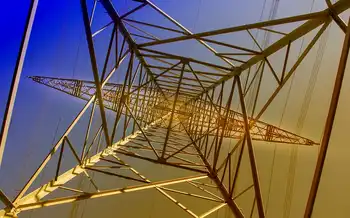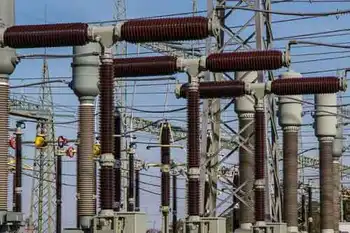Electric tractors are surging, with battery-powered models, grid-tethered JD GridCON, and solar-charged designs delivering autonomous guidance, high efficiency, low maintenance, quiet operation, robust PTO compatibility, and durability for sustainable, precision agriculture.
Key Points
Electric tractors use battery or grid power to run implements with high efficiency, low noise, and minimal maintenance.
✅ Battery, grid-tethered, or solar-charged power options
✅ Lower operating costs, reduced noise, fewer moving parts
✅ Autonomous guidance, PTO compatibility, and quick charging
Car and truck manufacturers are falling off the fossil fuel bandwagon in droves and jumping on the electric train.
Now add tractors to that list.
Every month, another e-tractor announcement comes across our desks. Environmental factors drive this trend, along with energy efficiency, lower maintenance, lower noise level and motor longevity, and even autonomous weed-zapping robots are emerging.
Let’s start with the Big Daddy of them all, the 400 horsepower JD GridCON. This tractor is not a hybrid and it has no hassle with batteries. The 300 kilowatts of power come to the GridCON through a 1,000 metre extension cord connected to the grid, including virtual power plants or an off-field generator. A reel on the tractor rolls the cable in and out. The cable is guided by a robotic arm to prevent the tractor from running over it.
It uses a 700 volt DC bus for electric power distribution onboard and for auxiliary implements. It uses a cooling infrastructure for off-board electrical use. Total efficiency of the drive train is around 85 percent. A 100 kilowatt electric motor runs the IVT transmission. There’s an auxiliary outlet for implements powered by an electric motor up to 200 kW.
GridCON autonomously follows prescribed routes in the field at speeds up to 12 m.p.h., leveraging concepts similar to fleet management solutions for coordination. It can also be guided manually with a remote control when manoeuvring the tractor to enter a field. Empty weight is 8.5 tonnes, which is about the same as a 6195R but with double the power. Deere engineers say it will save about 50 percent in operating costs compared to battery powered tractors.
Solectrac
Two California-built all-battery powered tractors are finally in full production. While the biggest is only 40 horsepower, these are serious tractors that may foretell the future of farm equipment.
The all-electric 40 h.p. eUtility tractor is based on a 1950s Ford built in India. Solectrac is able to buy the bare tractor without an engine, so it can create a brand new electric tractor with no used components for North American customers. One tractor has already been sold to a farmer in Ontario. | Solectrac photo
The tractors are built by Solectrac, owned by inventor Steve Heckeroth, who has been doing electric conversions on cars, trucks, race cars and tractors for 25 years. He said there are three main reasons to take electric tractors seriously: simplicity, energy efficiency and longevity.
“The electric motor has only one moving part, unlike small diesel engines, which have over 300 moving parts,” Heckeroth said, adding that Solectrac tractors are not halfway compromise hybrids but true electric machines that get their power from the sun or the grid, particularly in hydro-rich regions like Manitoba where clean electricity is abundant, whichever is closest.
Neither tractor uses hydraulics. Instead, Heckeroth uses electric linear actuators. The ones he installs provide 1,000 pounds of dynamic load and 3,000 lb. static loads. He uses linear actuators because they are 20 times more efficient than hydraulics.
The eUtility and eFarmer are two-wheel drive only, but engineers are working on compact four-wheel drive electric tractors. Each tractor carries a price tag of US$40,000. Because production numbers are still limited, both tractors are available on a first to deposit basis. One e-tractor has already been sold and delivered to a farmer in Ontario.
The eUtility is a 40 h.p. yard tractor that accepts all Category 1, 540 r.p.m. power take-off implements on the rear three-point hitch, except those requiring hydraulics. An optional hydraulic pump can be installed for $3,000 for legacy implements that require hydraulics. For that price, a dedicated electricity believer might instead consider converting the implement to electric.
“The eUtility is actually a converted new 1950s Ford tractor made in a factory in India that was taken over after the British were kicked out in 1948,” Heckeroth said.
“I am able to buy only the parts I need and then add the motor, controller and batteries. I had to go to India because it’s one of the few places that still makes geared transmissions. These transmissions work the best for electric tractors. Gear reduction is necessary to keep the motor in the most efficient range of about 2,000 r.p.m. It has four gears with a high and low range, which covers everything from creep to 25 m.p.h.
On his eUtility, a single 30 kWh onboard battery pack provides five to eight hours of run time, depending on loads. It can carry two battery packs. The Level 2 quick charge gives an 80 percent charge for one pack in three hours. Two packs can receive a full charge overnight with support from home batteries like Powerwall for load management.
The integrated battery management system protects the batteries during charging and discharging, while backup fuel cell chargers can keep storage healthy in remote deployments. Batteries are expected to last about 10 years, depending on the number of operating cycles and depth of discharge.
Exchangeable battery packs are available to keep the tractor running through the full work day. These smaller 20 kWh packs can be mounted on the rear hitch to balance the weight of the optional front loader or carried in the optional front loader to balance the weight of heavy implements mounted on the rear hitch.
The second tractor is the 20 kWh eFarmer, which features high visibility for row crop farms at a fraction of the cost of diesel fuel tractors. The 30 h.p. eFarmer is basically just a tube frame with the necessary components attached. A simple joystick controls steering, speed and brakes.
Harvest
Introduced to the North American public this spring by Motivo Engineering in California, the Harvest tractor is simply a big battery on wheels. The complex electrical system takes power in through a variety of renewable energy sources, such as solar panels with smart solar inverters enabling optimized PV integration, water wheels, wind turbines or even intermittent electrical grids. It stores electrical power on-board and delivers it when and where required, putting power out to a large number of electrical tools and farm implements. It operates in AC or DC modes.
Related News












